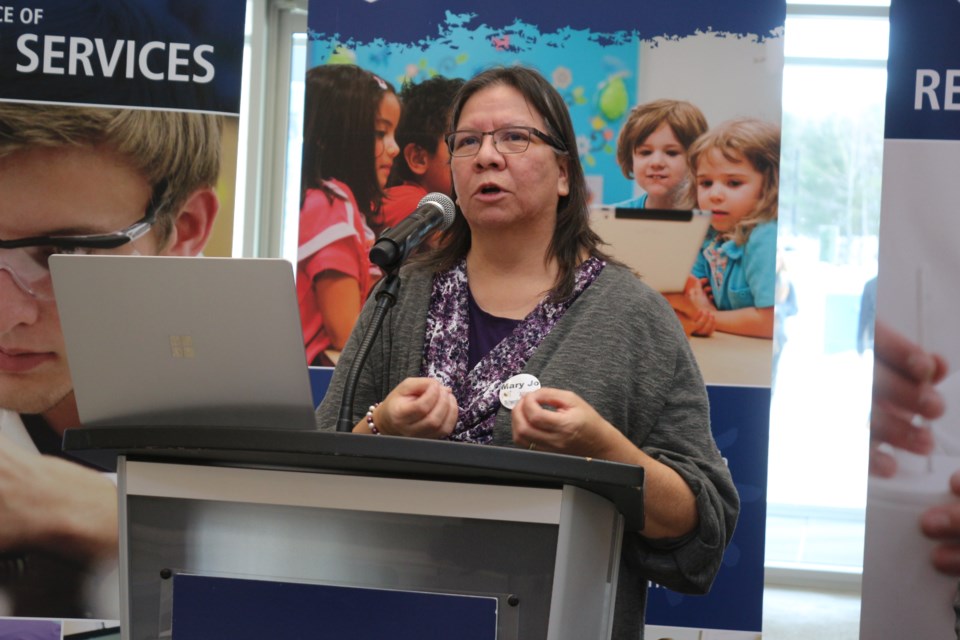A tool developed in the Manitoulin Island community of Wikwemikong to assess the health of Indigenous children is going Canada-wide thanks to a $1.5-million grant from the Canadian Institutes of Health Research (CIHR), a federal agency.
The Aboriginal Children’s Health and Well-being Measure (ACHWM) — or I aM Well — is a joint project between Naandwechige-Gamig Wikwemikong Health Centre and Laurentian University.
The tool takes the form of an easy-to-use app. Kids and teens between eight and 18 years old can fill out the questionnaire themselves in about 15 minutes on a tablet, providing information on their physical and mental well-being.
Even if the children have low literacy levels, they can still fill out the questionnaire themselves because the tablet can speak.
The questionnaire, dubbed in Wikwemikong “Anish Naa Gii” (or “How are you?” in Ojibwe), is automatically tabulated, and the information used to assess whether the children need further services.
“We are able to address whatever the need is, whether it's physical, emotional, mental or spiritual support,” said Mary Jo Wabano, Naandwechige-Gamig Wikwemikong health services director.
The tool was developed in partnership with health services in the community and Laurentian over roughly the past 10 years.
The questions on the survey were actually developed with the help of kids in the community themselves.
“The challenge was that kids had needs, and communities actually have services — not necessarily everything they need, but they have services, but the kids weren't always connecting to the service,” said Nancy Young, research chair, rural and northern children's health at Laurentian University, who worked on the project for the university.
“This is a connector. The tablet, the widget, that part of it, helps the child express how they're doing. But then it's over to communities.”
The women say the tool has already been shared with Indigenous communities across the country, but the funding will help it to spread even further.
“So this means we've actually got funding,” Young said.
“What we were trying to do on a shoestring, we now have a more formal system to support that. We're dreaming of 150 communities. I don't know, maybe I'm dreaming in Technicolour.”
Speaking at a Jan. 8 press conference at Laurentian University, Sudbury MP Paul Lefebvre said First Nations, Métis and Inuit children and youth experience health challenges at a much higher rate than non-Indigenous youth.
“There is an urgent need to address these health inequities and to collect the data needed to guide health policies,” he said. “That is where Dr. Nancy Young and her team of researchers and community partners come in.”
Learn more about the I aM Well project on its website.
